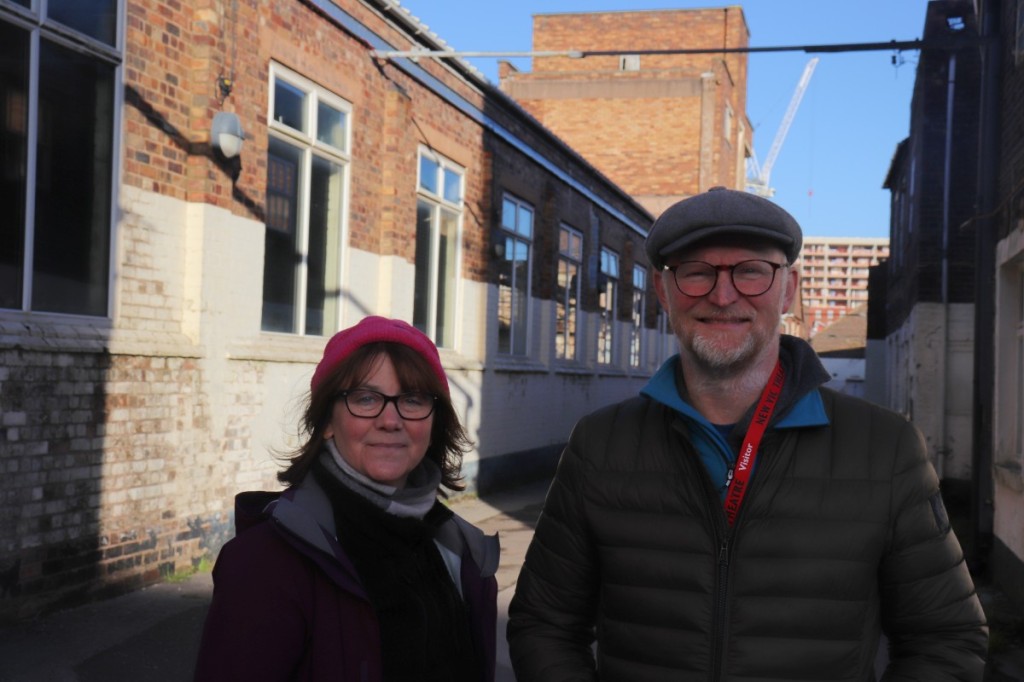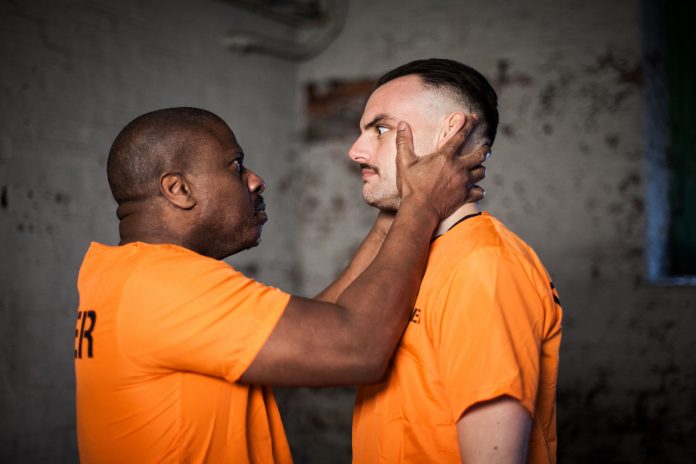And now, a post I’m very excited to share with you. Following on from my review of The Card and my subsequent award as Best Production 2023, Deborah McAndrew from Claybody Theatre got in touch we me and asked me if I would like to take a look at their new space. Until now, Claybody Theatre has been doing a series of performances in ad-hoc venues (co-production with the New Vic excepted), but they are now leasing the Dipping House in Stoke for a year.
As I live in Durham rather than Stoke, this had to wait until January when I was next travelling to Stoke anyway (for The Nutcracker – good review coming), but once I was there I was delighted to take the opportunity to ask Conrad Nelson and Deborah McAndrew all about their plans – and also how they got here.
The background of Claybody Theatre is truly an extraordinary one. The husband-and-wife team of director Conrad Nelson and writer Deborah McAndrew for many years practically operated as a theatre company in its own right within Northern Broadsides, and when artistic director Barrie Rutter announced his retirement, it seems a foregone conclusion that they would take over the company. But instead, after a year as caretaker leadership, the astonished the theatre world by announcing they were leaving completely to instead focus on their side-project Claybody Theatre, dedicated to a hyper-local target audience of Stoke-on-Trent. It seemed like a crazy gamble, but last year’s outstanding production of The Card – on every bit the grand scale of their Northern Broadsides days – vindicates that decision.
So how did they rise through the ranks of Northern Broadsides. What made them surprise us all by switching to a new company. And how do they plan to use their success for the future. For fifty-five minutes, I had the chance to hear all about it.
What’s great about this place is the “found space” thing, which was a lot to do with the early doors of Northern Broadsides, finding somewhere to play. So there’s a familiar tale in finding ex-industrial spaces, they’ve got a real magic to them when you come in.


 I was, for a number of years, running venues up in Edinburgh. I was one of the founders of the original Sweet Venues in 2003; before then I was producing, acting, directing – what a lot of people do – since 1996. And it was something that popped up – I didn’t really see myself as running a whole festival. But I was curious, and I knew Holly who was running Brighton Fringe at the time with Nick Stockman. And I came down, and I was of of the producers of a show at the Brunswick in 2009 with Le Navet Bete, a company now based in Exeter. That was my first Brighton Fringe experience, and I was curious about setting up a Sweet Venue in Brighton. So I got to know Brighton as well. And when the job came up, I thought “Yeah, I’ll give it a go.”
I was, for a number of years, running venues up in Edinburgh. I was one of the founders of the original Sweet Venues in 2003; before then I was producing, acting, directing – what a lot of people do – since 1996. And it was something that popped up – I didn’t really see myself as running a whole festival. But I was curious, and I knew Holly who was running Brighton Fringe at the time with Nick Stockman. And I came down, and I was of of the producers of a show at the Brunswick in 2009 with Le Navet Bete, a company now based in Exeter. That was my first Brighton Fringe experience, and I was curious about setting up a Sweet Venue in Brighton. So I got to know Brighton as well. And when the job came up, I thought “Yeah, I’ll give it a go.”



